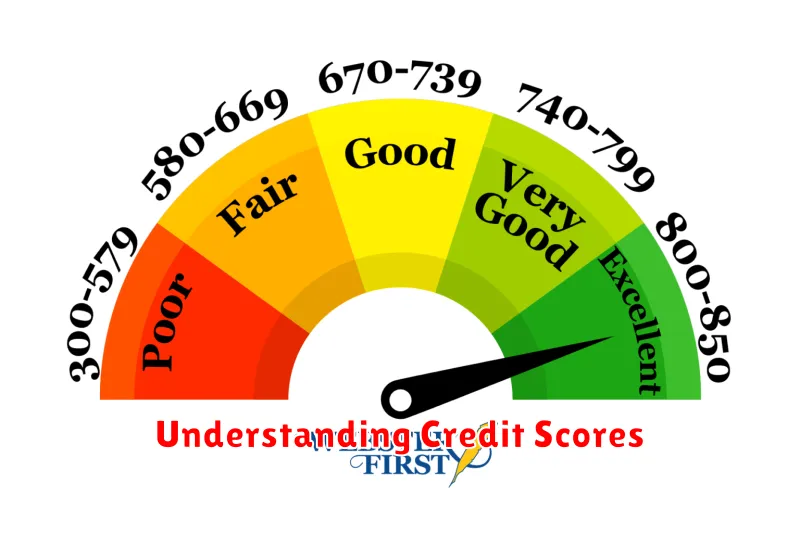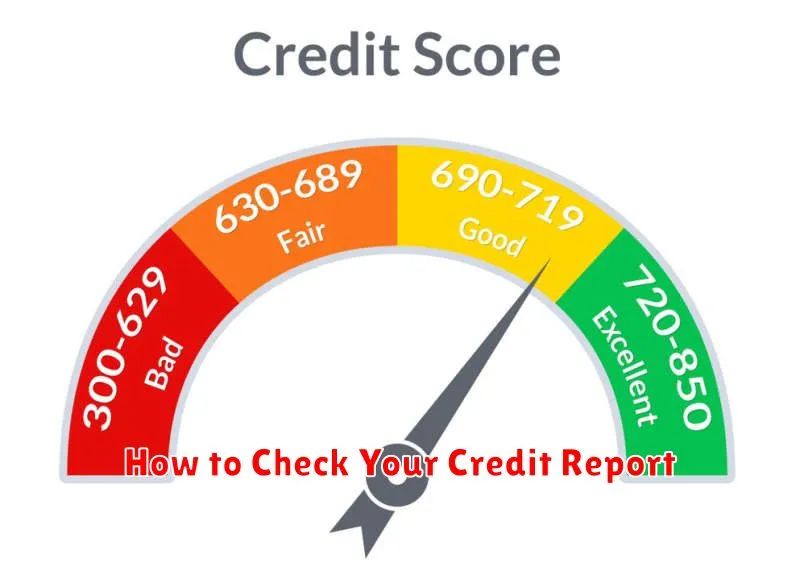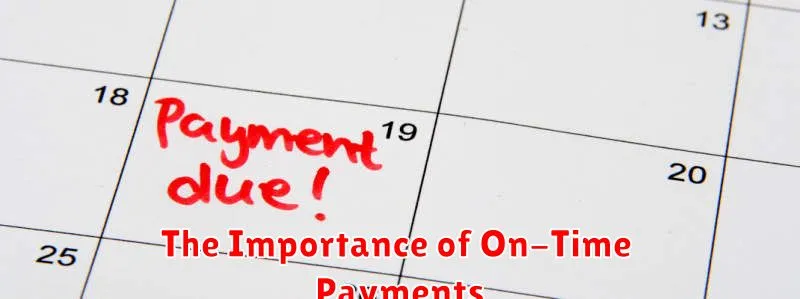Improving your credit score quickly can feel daunting, but with the right strategies, it’s achievable. This guide provides actionable steps to boost your creditworthiness and achieve a higher credit rating in a shorter time frame. We’ll explore effective methods for improving credit score, including paying down debt, maintaining a good payment history, and understanding your credit report. Learn how to navigate the complexities of credit scoring and take control of your financial future by significantly improving your credit score fast.
Understanding Credit Scores

Your credit score is a three-digit number that lenders use to assess your creditworthiness. It summarizes your credit history, indicating how likely you are to repay borrowed money. Scores generally range from 300 to 850, with higher scores signifying better credit health.
Credit bureaus (like Equifax, Experian, and TransUnion) compile your credit information, creating your credit report. This report details your payment history, amounts owed, length of credit history, new credit applications, and the types of credit you use. These factors are weighed differently in calculating your score, with payment history being the most significant.
Understanding your credit score is crucial because it influences your access to credit and its cost. A higher score qualifies you for lower interest rates on loans, credit cards, and mortgages, saving you significant money over time. Conversely, a low score can limit your borrowing options and result in higher interest rates or denial of credit applications.
Regularly checking your credit reports from all three bureaus is essential for identifying and resolving any errors that could negatively impact your score. This proactive approach is vital for maintaining and improving your financial standing.
Factors That Affect Your Credit Score
Your credit score, a crucial element in obtaining loans and credit, is influenced by several key factors. Understanding these factors is the first step towards improving your score.
Payment History is the most significant factor, accounting for 35% of your score. Consistent on-time payments demonstrate responsible credit management.
Amounts Owed (30%) reflects your debt-to-credit ratio. Keeping your credit utilization low – ideally below 30% – is vital. High balances suggest a higher risk to lenders.
Length of Credit History (15%) considers the age of your accounts. Longer credit histories, showing a consistent pattern of responsible credit use, generally result in better scores.
New Credit (10%) refers to the recent opening of new credit accounts. Frequent applications can negatively impact your score as it suggests increased risk.
Credit Mix (10%) considers the variety of credit accounts you hold, such as credit cards, installment loans, and mortgages. A diverse credit mix can positively affect your score, demonstrating responsible management of different credit types.
How to Check Your Credit Report

Checking your credit report is the first step to improving your credit score. You’re entitled to a free credit report from each of the three major credit bureaus – Equifax, Experian, and TransUnion – once a year through AnnualCreditReport.com. This is the only officially authorized website; avoid others that may charge a fee or be fraudulent.
To obtain your free report, you’ll need to provide some personal information to verify your identity. This typically includes your name, address, Social Security number, and date of birth. The process is straightforward and usually takes only a few minutes to complete.
Once you receive your report, review it carefully for any inaccuracies or errors. Disputes should be filed directly with the respective credit bureau if you find any discrepancies. Addressing these issues promptly is crucial to maintaining a healthy credit history and accurate credit score.
Regularly checking your credit report allows you to monitor your credit activity, identify potential problems early, and take steps to improve your creditworthiness. This proactive approach is essential for building and maintaining a strong financial foundation.
Ways to Improve Your Credit Score Fast
Improving your credit score quickly requires a multi-pronged approach focusing on consistent, positive financial habits. Paying down debt is crucial; prioritize high-interest debts like credit cards. Even small, consistent payments demonstrate responsible credit management.
Keeping your credit utilization low is another key factor. Aim to use less than 30% of your available credit on each card. This shows lenders you’re managing your credit responsibly and not overextending yourself.
Ensuring timely payments on all your debts is paramount. Late payments significantly damage your score. Set up automatic payments to avoid missing deadlines. Consider setting up payment reminders if automation isn’t possible.
Checking your credit report regularly for errors is essential. Disputes any inaccuracies immediately as they can negatively impact your score. Monitoring your report also allows you to track your progress.
Finally, while not an immediate fix, avoiding opening multiple new credit accounts in a short period is advisable. Each new application results in a hard inquiry which can temporarily lower your score. Focus on responsible management of your existing accounts.
Managing Credit Card Debt Responsibly
Credit card debt significantly impacts your credit score. High credit utilization (the amount of credit you’re using compared to your total available credit) is a major factor. To improve your score quickly, prioritize paying down your debt.
Create a budget to track your spending and identify areas where you can cut back to allocate more funds towards debt repayment. Consider using the debt avalanche or debt snowball methods to strategically tackle your balances. The avalanche method focuses on paying off the highest interest debt first, while the snowball method prioritizes paying off the smallest debt first for motivational purposes.
Negotiate with your creditors. Contact your credit card companies to explore options like lower interest rates or hardship programs. These can reduce your monthly payments and accelerate your debt reduction efforts. However, be aware that negotiating may temporarily impact your credit score.
Avoid opening new credit cards while actively paying down debt. Opening new accounts can lower your average credit age and potentially increase your credit utilization ratio, negatively affecting your score. Focus on responsible repayment to see positive changes quickly.
Monitor your progress regularly. Track your credit utilization and payment history; these are crucial elements of your credit score. Using online tools or credit reports, you can observe the impact of your debt management efforts on your creditworthiness.
The Importance of On-Time Payments

Making on-time payments is arguably the most crucial factor in improving your credit score quickly. Your payment history accounts for a significant portion (35%) of your credit score calculation.
Consistent on-time payments demonstrate responsible financial behavior to lenders. Conversely, late or missed payments severely damage your credit score, impacting your ability to secure loans, credit cards, and even rental agreements in the future.
Even a single late payment can negatively affect your score for several years. Therefore, establishing a history of punctual payments is essential for building and maintaining a strong credit profile.
Automating payments through online banking or setting reminders can significantly improve your chances of paying on time consistently. This simple step can dramatically improve your creditworthiness over time.
How to Dispute Credit Report Errors
A credit report error can significantly impact your credit score. Addressing these errors is crucial for improving your score quickly.
First, obtain your credit reports from all three major credit bureaus: Equifax, Experian, and TransUnion. Carefully review each report for any inaccuracies, such as incorrect account information, late payments that weren’t yours, or accounts you didn’t open.
Next, prepare a dispute letter for each bureau. Clearly state the specific errors you’ve identified, providing supporting documentation such as proof of payment or a copy of your bank statement. Send your letters via certified mail to ensure delivery confirmation.
After submitting your dispute, the credit bureau has a set timeframe (typically 30-45 days) to investigate. They will then inform you of their findings and update your report accordingly. If the error isn’t corrected, you may need to escalate the issue with the bureau or consider contacting a credit repair agency. Remember to keep copies of all correspondence.
Promptly addressing credit report errors is a vital step in improving your credit score and maintaining a healthy financial standing. Be persistent and thorough in your efforts.
Building Long-Term Creditworthiness

Improving your credit score quickly is important, but building long-term creditworthiness is even more crucial. A high score is a snapshot in time; lasting credit health requires consistent, responsible behavior.
Responsible credit card use is key. Keep your credit utilization ratio (the amount you owe compared to your credit limit) low – ideally under 30%. Pay your bills on time, every time. This demonstrates reliability to lenders.
Diversifying your credit is also beneficial. A mix of credit accounts, such as credit cards, installment loans (like car loans), and mortgages (if applicable), showcases your ability to manage various credit types responsibly. However, avoid opening numerous accounts in a short period.
Monitoring your credit reports regularly is essential. Check for errors and discrepancies; address them promptly with the respective credit bureaus. This proactive approach protects your credit health and prevents unforeseen issues.
Finally, patience and persistence are vital. Building strong credit takes time. Consistent responsible financial habits will yield better long-term results than quick fixes.

